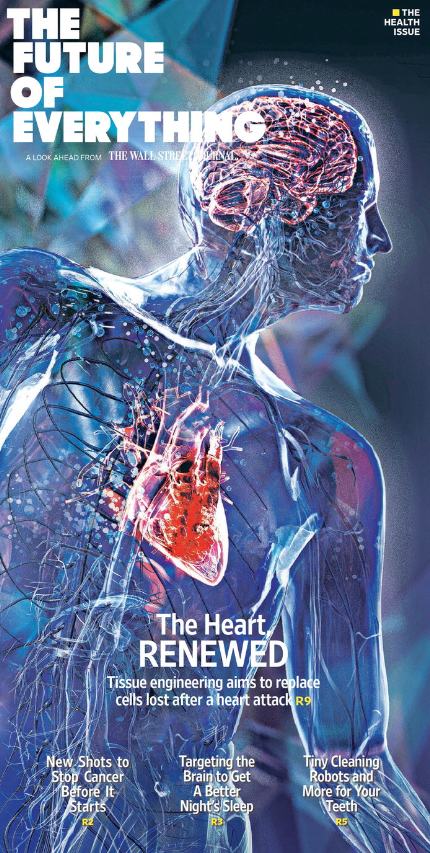
I’M writing this on Election Day, and by the time you’re reading it, about half of the U.S. electorate will already be voicing outrage over the election results.
We should heed Matthew Hennessey’s advice. “Whatever happens…don’t get carried away and don’t despair. Take, if you can, the long view.” Things, said the Wall Street Journal editor, are going pretty well in the land of the free and the home of the brave. On the cusp of its 250th birthday, he said, America still has its republican form of government, Constitution and Bill of Rights. The U.S. remains a stable democratic country with the world’s largest and most dynamic economy.
“We live longer and better than our grandparents did,” Hennessey noted. “Our universities and companies are magnets for global talent. We invented the telephone, the airplane, the automobile, and the internet. We’ve given the world jazz, rock ’n’ roll and hip-hop. We have Hollywood and Silicon Valley. Wall Street is still top dog. The dollar is the world’s reserve currency and U.S. Treasurys are the world’s safest investment.
“Face it: This country is far from average. It’d be hard for one person or one election to ruin it…. Something about how our Founders went about their work has set us up for centuries of success, and the end isn’t remotely in sight. There’s life left in Lady Liberty, plenty of it. The United States of America is still the last best hope on earth.”
And the Northern Marianas is a Commonwealth of the U.S.
***
Meanwhile, according to the Journal, astounding things are happening in the field of modern medicine — thanks to American ingenuity and innovation.
These include vaccines that can stop cancer before it starts.
“After decades of disappointment,” the Journal reported, “advanced technologies and a better understanding of the immune system have rejuvenated the field. Companies including Moderna are developing vaccines to treat cancer or keep disease from coming back.”
In addition, there are now gadgets that can “speed up the onset of sleep, improve the length and quality of rest, and even transition travelers to a different time zone before their planes touch down.” This should be great news for the more than 30% of adults in the U.S. who have reported sleep disturbances, the Journal stated, citing data from the Centers for Disease Control and Prevention.
And what do you know. Scientists can now grow vessels with human cells to replace arteries and veins, which will advance care for trauma and circulatory problems, saving lives and limbs. According to the Journal, Humacyte, a North Carolina-based biotechnology company, “is studying whether the blood vessels could also help people undergoing dialysis, who often have to rely on plastic catheters, which can lead to infections.” This technology can help cardiac bypass patients as well, Humacyte said. “Further down the road are labgrown organs, such as livers or hearts,” the Journal added. Stay tuned.
Now imagine a world “where you could regenerate a missing tooth with a single drug, and microrobots clean your teeth every night. That future is getting closer, scientists say.” And the future includes technology that can make teeth stronger and less sensitive. “Enamel, the hard outer layer of a tooth, protects teeth from damage. But the body can’t regenerate it once it is eroded, and dentists can’t replace it either. Scientists are working on a gel that rebuilds enamel by copying mother nature.”
Today, moreover, breakthroughs in technologies could allow blind people to use smartphones and other electronics for reading and perusing the internet. “Some hope the new tactile devices will help level the playing field for visually impaired students, who typically learn using Braille or audio tools,” the Journal said.
And that’s not all.
Science is also finding new ways to regenerate the human heart.
“A range of tissue-engineering techniques are in the works to regrow heart muscle after a heart attack and repair lungs and other organs.
“It’s hard to mend a broken heart, but in a few years doctors may be able to do essentially that.
“Scientists are closing in on ways to help patients grow new heart muscle after a heart attack, as well as new lung tissue to treat fibrosis, corneas to erase eye pain and other body parts to gain a new chance at life.
“If the science works, it could represent a new approach to medicine: reversing rather than alleviating chronic illnesses.”
Soon, moreover, scientists can use technology to treat addictions.
“In Appalachia,” the Journal reported, “in the heart of one of the earliest and deadliest waves of the opioid crisis, doctors at West Virginia University’s Rockefeller Neuroscience Institute are conducting a radical experiment. Using focused ultrasound waves, they are resetting cells inside the brain’s reward center, the nucleus accumbens. They hope the procedure can treat addictions ranging from drugs like opioids and methamphetamine to gambling and eating.”
According to the Journal, a “30-patient trial follows promising results from an earlier trial of 20 patients who were aware of the treatment protocol they received. Patients who had spent much of their lives using drugs saw their cravings drop to near zero. About three-quarters of participants remained substance-free several months later.”
***
From Alistair Cooke:
“In the best of times, our days are numbered anyway. So it would be a crime against nature for any generation to take the world crisis so solemnly that it puts off enjoying those things for which we were designed in the first place: the opportunity to do good work, to enjoy friends, to fall in love, to hit a ball, and to bounce a baby.”
Send feedback to editor@mvariety.com











